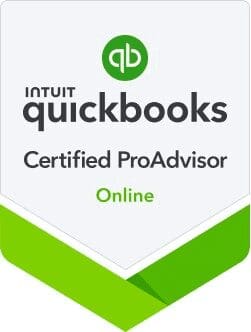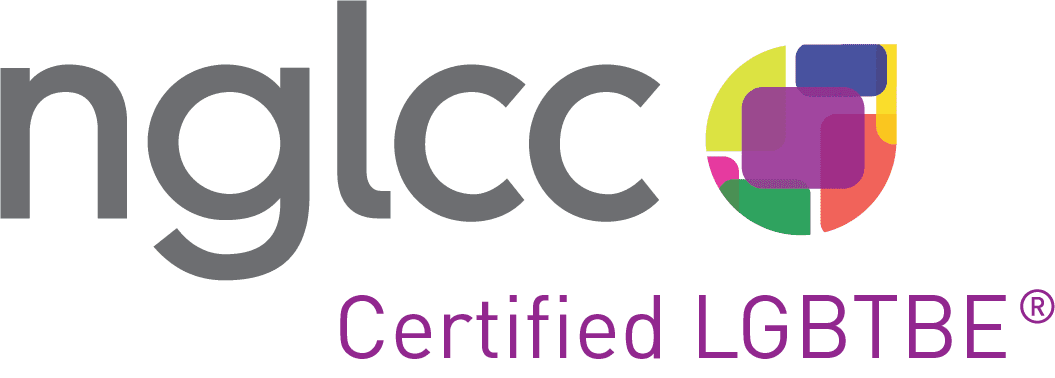Tackling your taxes in Reno can seem daunting, but with the right strategies and understanding, you can significantly reduce your tax liability. Whether you're a freelancer, a small business owner, or an individual filer, knowing the basics of tax credits and deductions can help you save money and optimize your financial health. In this article, we explore several practical tax reduction tips for residents of Reno, Nevada. From leveraging fully refundable tax credits that might increase your tax refund to making informed decisions between standard and itemized deductions, our aim is to simplify these concepts and present them in a manner that's easy to digest and apply. Furthermore, with the increasing trend of working from home, we also delve into deductions specific to home office setups.

As we go further, I'll illustrate how to identify which tax credits can be fully refundable and how you can benefit from environmental tax credits through energy efficiency upgrades. Understanding these areas will not only better your chances of reducing your annual Reno, Nevada taxes but also improve your overall financial strategies. We encourage our readers to consult with a tax professional to effectively implement these strategies and ensure compliance with local Reno, Nevada tax laws. Keep in mind, the key to maximizing your tax return lies in understanding the details of these tax-saving opportunities. By the end of this guide, you'll be equipped with actionable advice tailored specifically for Reno, Nevada taxes.
Navigating the complex world of Reno, Nevada taxes can be daunting, particularly when it comes to understanding which tax credits can be fully refundable. Fully refundable tax credits are especially beneficial as they can reduce your tax liability below zero, leading to a tax refund. This is particularly relevant for residents of Reno, Nevada, where taking advantage of such credits can significantly impact your financial health. One of the most impactful fully refundable tax credits is the Earned Income Tax Credit (EITC). Designed to assist low-to-moderate-income working individuals and families, the EITC reduces the amount of tax owed and may also provide a refund. The amount of the credit is determined by income, filing status, and the number of children. Importantly, not only can it reduce the tax owed to zero, but if the credit exceeds the amount of taxes owed, the excess is refunded to the taxpayer. For many in Reno, Nevada, this makes the EITC a crucial tool in boosting their annual financial health. Another significant fully refundable credit is the Child Tax Credit (CTC), which was expanded significantly under recent legislation. For qualifying families, the credit provides substantial financial relief by offsetting the costs of raising children. With its recent expansion under the American Rescue Plan for the 2021 tax year, the CTC became even more valuable, with a portion being fully refundable. This means that families in Reno could receive a refund even if they didn’t owe any income tax.
Several factors can affect your eligibility for refundable tax credits and the amount you can claim. For the EITC, income and family size are the primary determinants. It is crucial for taxpayers in Reno, Nevada, to keep their income documentation updated and accurate to maximize their potential credit. Additionally, for the CTC, the age of the children and care expenses are also determinative factors. Knowing the nuances of these credits can make a substantial difference in your tax outcomes. Understanding these credits and applying them correctly can significantly impact the amount of your tax refund. Consulting with a tax professional or using trusted tax preparation software can help ensure that you are maximizing these opportunities while remaining compliant with Reno, Nevada taxes.
Understanding the difference between standard and itemized deductions is crucial for enhancing your tax savings, especially in Reno, Nevada. When you file your tax return, you have the option to choose between these two methods to reduce your taxable income. The method you choose can significantly affect your tax liability and potentially lead to substantial savings, depending on your financial circumstances. The standard deduction is a fixed amount that the IRS allows taxpayers to subtract from their income before income tax is applied. It changes from year to year, adjusted for inflation, and varies according to your filing status—single, married filing jointly, married filing separately, or head of household. This deduction is appealing because of its simplicity and the fact that it requires no detailed record-keeping or receipts.
On the other hand, itemized deductions require a taxpayer to keep track of allowable expenses throughout the year. These expenses can include mortgage interest, state and local taxes (SALT), charitable contributions, medical expenses that exceed a certain percentage of your income, and unreimbursed business expenses, among others. If the total amount of your itemized deductions exceeds the standard deduction amount, it may be beneficial to itemize your deductions to decrease your taxable income further. This is particularly relevant for residents in Reno, Nevada, where certain local taxes and deductions could impact your overall tax savings.
Deciding whether to take the standard deduction or to itemize will depend on your personal financial situation and how it aligns with Reno, Nevada's tax landscape. As a general guideline, if your itemized deductions are greater than your standard deduction, itemizing will save you money. However, calculating whether you benefit more from itemizing requires detailed record-keeping and a thorough understanding of what deductions are allowed. For many taxpayers in Reno, particularly those with mortgages or substantial deductible expenses such as medical bills or charitable contributions, itemizing deductions could result in a lower tax bill. Those who rent rather than own a home, or who live in states with low personal income tax, may find that the standard deduction saves them more.
It's also worth noting that recent tax law changes have affected the calculations for many taxpayers, including those in Reno, Nevada. For instance, the Tax Cuts and Jobs Act of 2017 significantly increased the standard deduction and placed limits on certain itemized deductions, such as the SALT deduction. As a result, fewer taxpayers may find it beneficial to itemize deductions compared to past years. To make an informed decision, consider both the amounts and the additional effort required for itemizing, particularly in the context of Reno's tax environment. Using software or consulting with a tax professional familiar with Reno, Nevada taxes can provide clarity, ensuring that you take full advantage of the deductions available and make the most financially sound decision.
The shift toward remote work has made home offices a common feature in many workers' lives. For those who have transitioned to working from home, either partially or fully, knowing how to properly handle home office deductions can lead to significant tax savings. It's important to understand the specific requirements set forth by the IRS to ensure eligibility and to maximize your benefits while maintaining compliance with Reno, Nevada taxes. Firstly, to qualify for home office deductions, the space must be used regularly and exclusively for business purposes. This means the area designated as your office cannot double as a part-time family room or a guest bedroom. The use must be consistent and solely for work-related activities. Eligibility also hinges on the role your home plays in your business—the space must be either your principal place of business or a place where you regularly meet with clients or patients.
Firstly, to qualify for home office deductions, the space must be used regularly and exclusively for business purposes. This means the area designated as your office cannot double as a part-time family room or a guest bedroom. The use must be consistent and solely for work-related activities. Eligibility also hinges on the role your home plays in your business—the space must be either your principal place of business or a place where you regularly meet with clients or patients.
Important Note: The home office deduction is NOT available to W2 earners. If you have a job and receive a W2 form, you do not qualify for this deduction. However, if you have any 1099 income, are a small business owner, or have a side hustle, you can use home office deductions to reduce your net income to zero. It's essential to note that while you can reduce your income to zero, you cannot go into a loss with those expenses.
Once you've established that your home office meets these criteria, you can begin to explore the deductions available. These typically include a portion of household expenses, such as utility costs, internet charges, and home maintenance, prorated based on the size of your home office as a percentage of your home's total area. This approach requires keeping thorough records of all relevant expenditures, which can be advantageous if your home office expenses are high. The IRS offers two methods for calculating home office expenses: the simplified option and the regular method. The simplified option allows for a standard deduction of $5 per square foot of your home used for business, with a maximum of 300 square feet, translating to a maximum deduction of $1,500 annually. This method reduces paperwork and simplifies the process, making it an attractive option for many. However, if you have significant home office expenses, the regular method might be more beneficial. This approach involves calculating the actual expenses associated with maintaining your home office. You'll need to determine the percentage of your home's total square footage that the office occupies and apply this percentage to your total home expenses. Categories eligible for full deductibility include directly related expenses such as painting or repairs solely for your office area.
Regardless of the method chosen, keeping detailed records is crucial. Receipts, utility bills, and records of home improvements should be meticulously maintained to support your deductions if ever questioned by the IRS. Planning and foresight can help optimize your tax return, ensuring you receive the maximum legitimate benefits from your home office arrangements in Reno, Nevada.
In today's eco-conscious market, homeowners and businesses are increasingly motivated to reduce their energy usage and enhance their property's efficiency. The benefits of making energy-efficient upgrades are manifold, encompassing not only reduced utility costs and increased property value but also significant tax advantages. U.S. federal and state governments, recognizing the importance of environmental sustainability, offer various tax credits that incentivize these improvements. Exploring these options can result in considerable savings while supporting ecological goals. Tax credits, unlike deductions, provide a dollar-for-dollar reduction in the amount of tax owed, thereby offering a more impactful financial benefit. For instance, the Residential Renewable Energy Tax Credit allows homeowners to deduct 26% of the cost of installing solar energy systems from their federal taxes for the year 2020, with the credit set to decrease to 22% in 2021 before expiring in 2022. Similarly, the Nonbusiness Energy Property Credit supports the installation of energy-efficient heat pumps, insulation, doors, and windows by offering a tax credit for 10% of the cost, up to $500.
To fully leverage these environmental tax credits, it is crucial for consumers to stay informed about the eligibility criteria and application process. The qualifications for tax credits can vary based on the specific improvements undertaken and the products installed. For example, not all energy-efficient appliances qualify for these credits, and the specifics can differ from one state to another. Thus, it is essential for taxpayers to consult the latest guidelines from the IRS or their state's taxation office or seek advice from professionals like Rough & Accounting. Homeowners in Reno, Nevada, should also be aware that some tax credits require the improvements to be on their primary residences, while others can extend to secondary homes or new construction. Keeping receipts and maintaining detailed records of all improvements are crucial steps to ensure the smooth processing of these tax benefits and compliance with Reno, Nevada tax laws. Furthermore, for those planning significant renovations, considering the timing and scale of purchases can be strategically beneficial in maximizing tax credits.
Secure Your Financial Future with Expert Tax Strategies
Understanding and implementing tax reduction strategies is essential for optimizing your financial health in Reno, Nevada. By leveraging fully refundable tax credits, choosing the right deduction method, and utilizing deductions for home office expenses, you can significantly reduce your tax liability. Additionally, taking advantage of environmental tax credits for energy efficiency improvements can provide further savings while contributing to a more sustainable future. However, navigating the complexities of Reno, Nevada tax laws can be challenging, so consulting with a tax professional is highly recommended to ensure you maximize your benefits and remain compliant with all regulations. With careful planning and informed decisions, you can achieve substantial tax savings and enhance your overall financial strategy.
For personalized tax advice and to learn more about how you can optimize your tax situation, contact us at Rought and Accounting. Our team of experts is here to guide you through every step of the process, ensuring you make the most of every tax-saving opportunity regarding your Reno, Nevada taxes. Reach out today to schedule a consultation and take the first step toward a more secure financial future.



